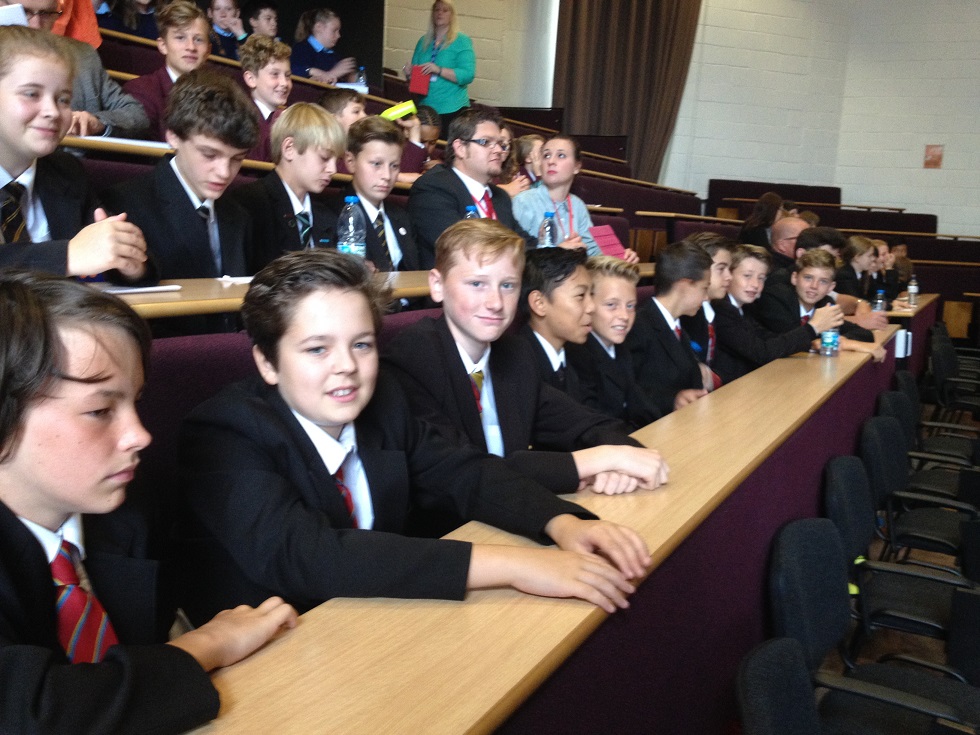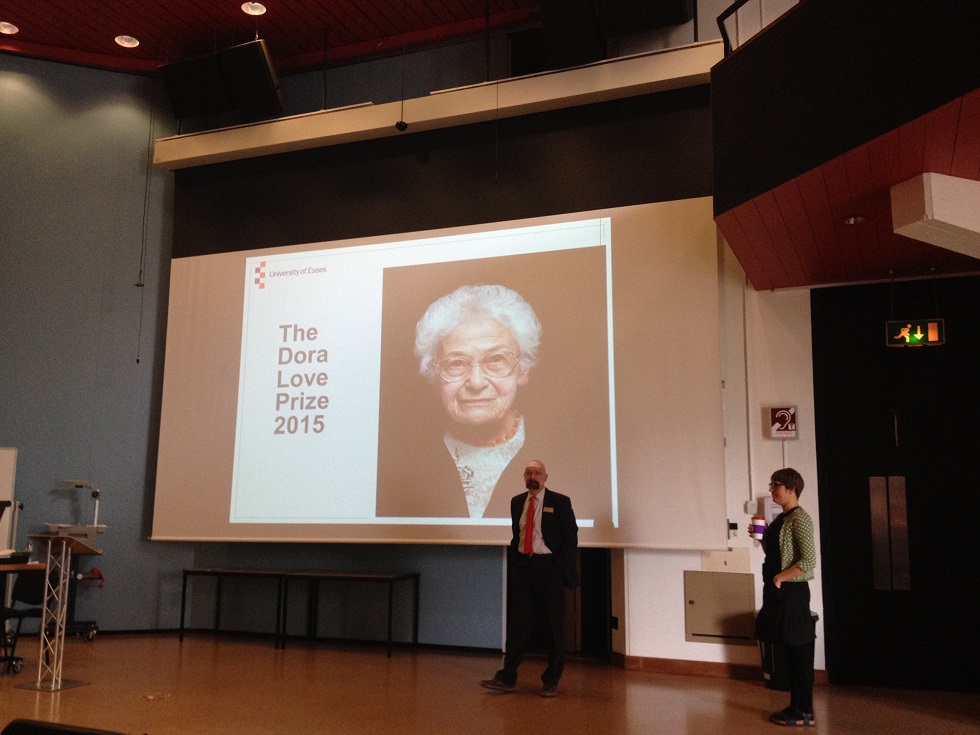Dora Love Prize 2014
- Details
- Published: Friday, 17 October 2014 14:03
Late last month a group of Yr9 students set off for Essex University to compete for the Dora Love Prize. The prize is named after a Holocaust survivor, who survived Stutthof concentration camp in Poland. Dora, who recently passed away, was a student at Essex University and besides her studies she dedicated a large portion of her life to educating the young about prejudice and hate and intolerance.

About Dora -
Dora Love was born on 21 May 1923 in the small town of Plunge in western Lithuania, the third of four children of Hirsch and Jetta Rabinowitz. Her father owned a successful porcelain and glass business, and in 1924 the family moved to nearby Memel on the Baltic Sea. Four days after her graduation from the German lyceum in Memel, in March 1939, the German Wehrmacht occupied the Memelland, making it part of Hitler’s Greater German Empire. Dora, her sister and one of her brothers were hurriedly smuggled out of the Memelland into Lithuania where she was re-united with the rest of her family in the little town of Šiauliai (Schaulen).
In June 1941, the Germans marched into Lithuania as part of their war against the Soviet Union. The SS quickly rounded up all Jews and crammed them into a Jewish ghetto set up in Schaulen. The ghetto inhabitants had to do forced labour, and in late 1943, when the ghetto was cleared, most of the inhabitants were transported, in cattle trains, to Stutthof concentration camp near Danzig. It was here that Dora experienced what she calls 'the depth of inhumanity' – her brother, her sister and her mother did not survive the inhuman and brutal conditions in the camp.
Dora survived, and in late April 1945, with Soviet troops advancing, she was one of the prisoners who were sent in small boats westwards across the Baltic Sea. Many of the prisoners died along the way; Dora was one of the few who reached the shores of Schleswig-Holstein after seven and a half days drifting across the Baltic Sea without food or water. She was found by British troops. Among them was her future husband, Frank Love, whom she married in January 1946. In the 1950s, her husband’s work took her to South Africa, where her two children were born. It was during this time, at the height of apartheid, that she began working as a teacher and giving talks on her experiences under the Nazi regime. She later settled in Colchester where she continued in her efforts to educate younger generations about the Holocaust.
The Competition –
Several schools in East Anglia, including some from as near as opposite us here in Kenilworth Gardens and as far as Cambridgeshire were invited to take part in a competition to highlight prejudice, whether it be part of the Holocaust or more recent examples. Our boys have begun their project with great dedication and empathy. They have already invited guest speakers to educate them in the finer points of their ideas and the school will begin to hear about the fruits of their labours very soon. The competition runs until December when judges from the Holocaust Memorial Day Trust and academics from Essex University will decide if our entry can go forward to the prize night itself at the Lakeside theatre in Colchester in January, where the boys will present their entry in front of a specially invited audience. Among whom will include Frank, pictured above, who himself was a survivor of the Holocaust.

